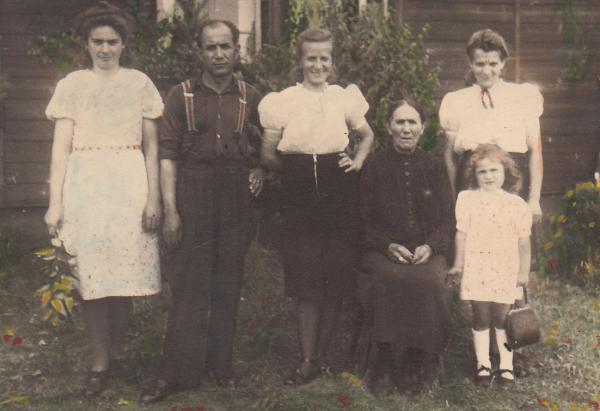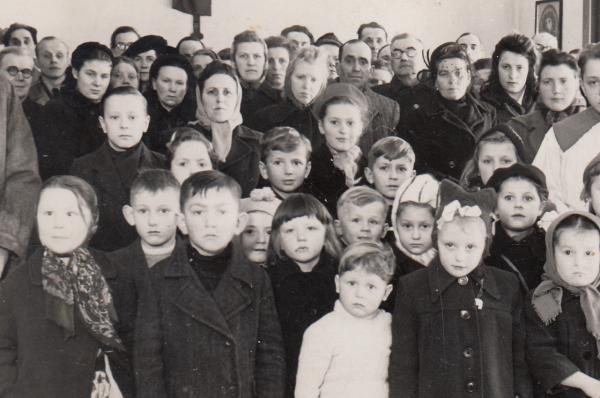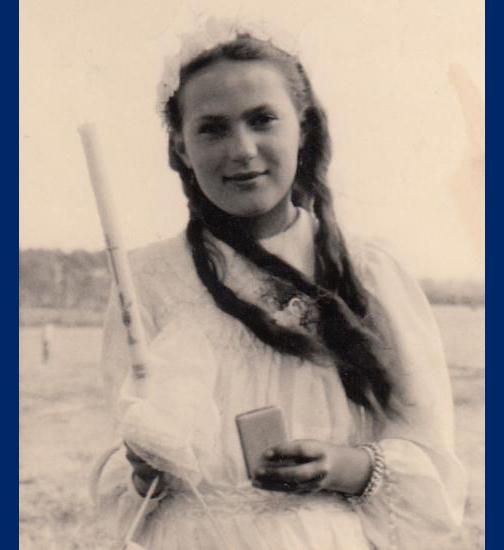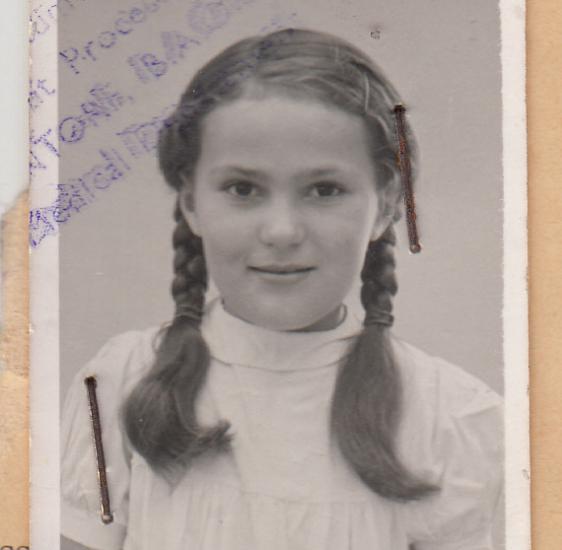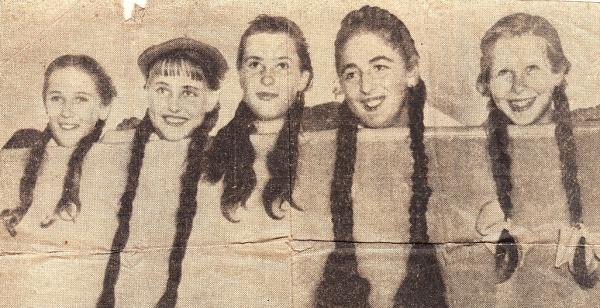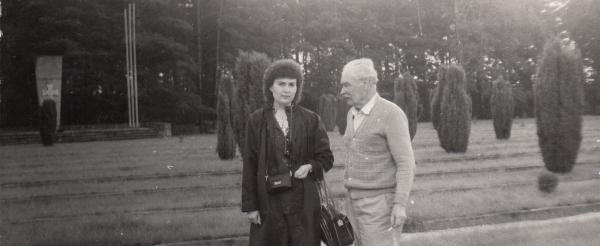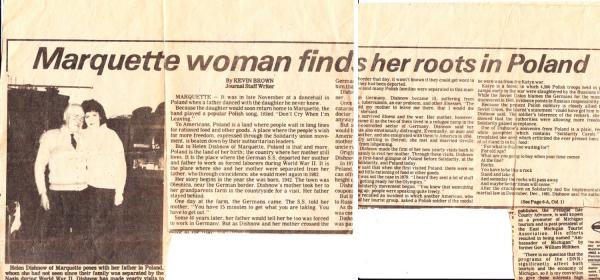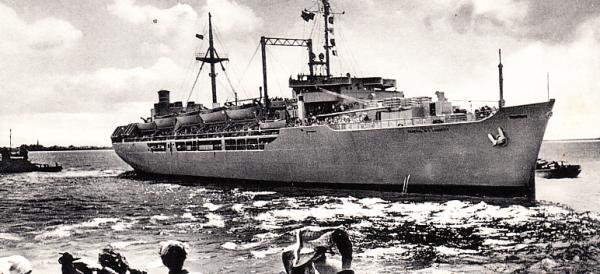Helen Dishno
Helen Dishno was born Helina Gackla in 1942 in a forced labor camp in Oleśnica, Poland. Her parents, Lucien Gackli and Katherine Vajda, had been living in their village of Ostrów Wielkopolski when the Nazis invaded Poland. Because they would not sign an oath to the Fuhrer, they were sent to the camp with her older brother. After she was born, her mother was able to leave the camp to visit her sister and brother-in- law. However, while visiting, the entire family was arrested by the Nazis and sent to a camp in Schwerin, Germany. Their father had no idea what happened to them and they would not see him again for forty years.
In the four labor and concentration camps where they were held in Germany, until liberation in 1945 by the U.S. Army, treatment was harsh and death was common. Helina’s brother and grandfather both died in the camp in Schwerin. Helina herself almost died from the conditions but her Aunt’s home remedies for her eyes helped keep her alive. After the war, the family was stuck in limbo in Germany. They did not want to go back to Poland, now controlled by the Russians and the new communist regime. However, it was a long process to immigrate to another country, many of which were not sure they wanted to be flooded by refugees.
Over the next 10 years, she and her family lived in a series of Displaced Persons campus across Eastern and Western Germany. Eventually, Helina, now 14 years old, and her Aunt and Uncle were able to emigrate to the U.S. after they were sponsored by a family from Chicago. Unfortunately, her mother could not emigrate due to poor health.
(Above) Family in displaced persons camp in Marx.
(Above) Group of children in a displaced persons camp. Helen is located near the middle.
Helina, her aunt and uncle settled in a part of Detroit known as Poletown, anchored by St. Stanislaus Church on Dubois Street. She attended St. Stanislaus High School and graduated in 1962. At 16 she began working at a bakery in Detroit, where she met her future husband, Orville Dishno, a city policeman originally from Ishpeming. They were married in January 1965 and June of that year, moved to Marquette where he joined the police force (he retired as a captain). Helen worked at Shopko as a cashier, raised two children and was an active member of Marquette’s Polish Club.
In 1984, she returned to Poland to try and find her father. With the help of her uncle, she was able to locate an old address for him in the town of Źagań. She found him working in the fields of his farm and hugged him for the first time since the war. He had tried to find his family after the war but was unsuccessful. Eventually, he remarried and had a new family. This was common after the war and her mother held no ill feelings.
Passport photo of Helen as a young girl.
Images courtesy of Helen Dishno
